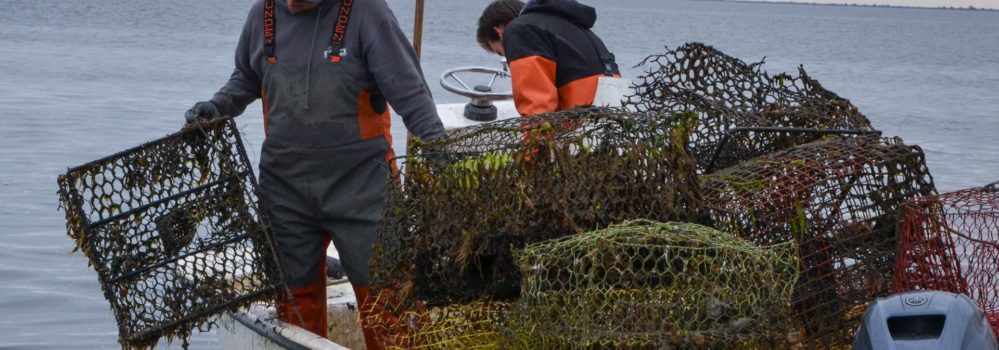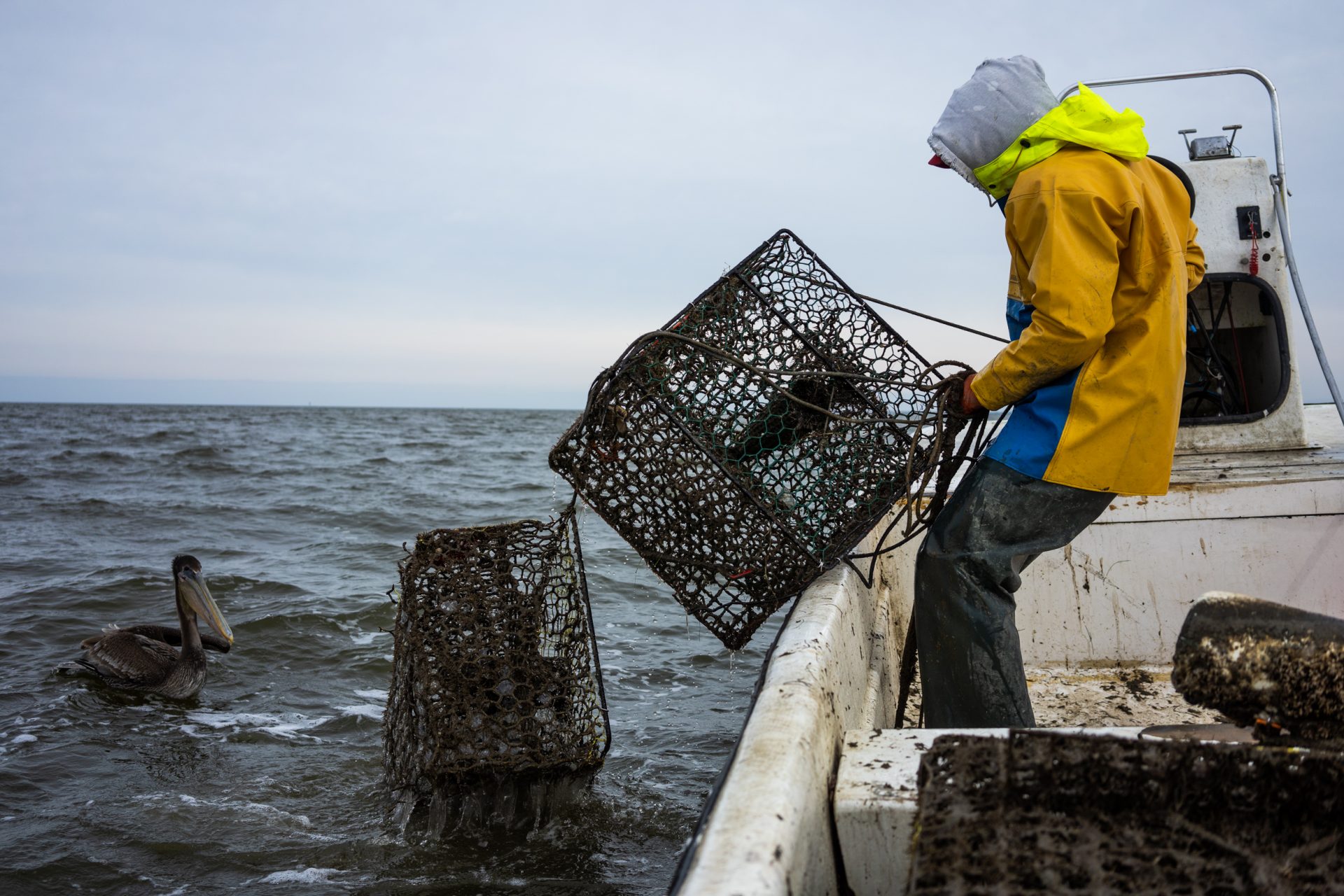
Retrieving ghost crab pots from the North Carolina coast

Along many of our coastal shores lie thousands of lost crab pots, left behind to become one of the dominant forms of marine debris in bay waters. Ghost crab pots, as they’re called, have lasting impacts on the ecosystem – bycatch of female crabs causes lower harvest numbers the following season.
In the Chesapeake Bay alone, fisherman lose an average of 72,000-120,000 pots each year. Storms, cutting of buoy lines by propellers, vandalism, and abandonment all lead to these lost pots.
Many states have taken pledges to collect these derelict pots, and since 2013, the North Carolina Coastal Federation has been leading the charge.
The federation received funding from the NOAA Marine Debris Program and North Carolina Sea Grant to galvanize a partnership with local commercial fishermen, the North Carolina Marine Patrol, local nonprofits, scientists, and community volunteers to collect marine debris in northeastern North Carolina. In the first year, 41 fishermen were employed during their “off” season to aide in the cleanup.
In 2014 and 2015, the federation tested a new restoration technique — using recycled crab pots to create oyster reefs. A multi-faceted process, the pots are cleaned and all entryways are closed to prevent possible bycatch. The pots are then coated in a pH-balanced mortar that serves to both add weight to the pots while providing substrate for baby oysters (called spat) to land on. A total 150 pots were recycled to create artificial oyster reef habitat.
The project went statewide in 2017, adding resources and funding to bring in additional fishermen. They spread out along the coast to collect 4,304 crab pots — more than the three previous years combined!
This past January, the federation and their watermen and women partners went to work again, collecting 3,112 crab pots from the North Carolina coast. Throughout the recovery project, all crews carried a tablet equipped with a custom program that was created for data collection in remote locations and utilizes existing satellite networks. The crews recorded physical and geographical attributes of each crab pot retrieved.
For more information on the progress of the Lost Fishing Gear Recovery Project over the past six years, visit nccoast.org/crabpotproject.
Logan Prochaska is a communications specialist with the North Carolina Coastal Federation.
Cover photo: In Marine Patrol District 2, which covers the central region of the North Carolina coast from Pungo River to Emerald Isle, eight boats made up of 16 commercial watermen picked up 1,159 crab pots. Photo credit: Logan Prochaska.
